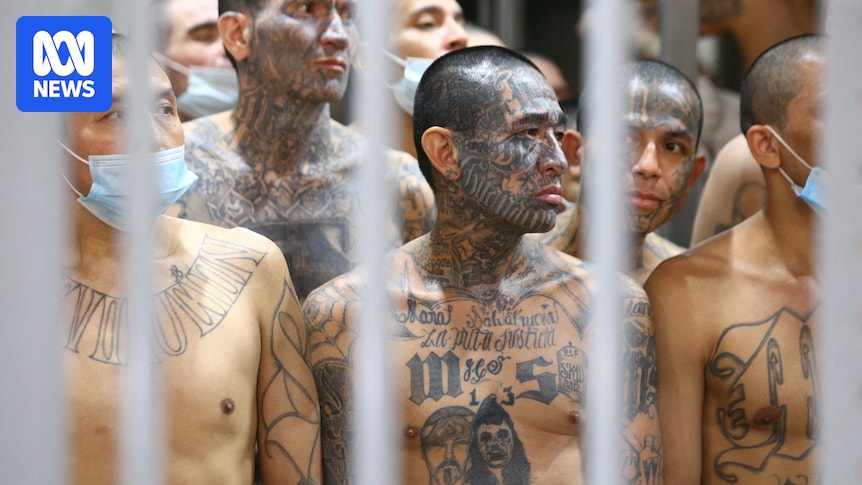CECOT: El Salvador's Mega-Prison for Deportees – A Controversial Solution to Crime?
El Salvador's President Nayib Bukele has unveiled CECOT (Centro de Confinamiento del Terrorismo), a massive new prison designed to house thousands of deportees and gang members. Boasting capacity for over 40,000 inmates, it's being touted as a key element in Bukele's controversial "war on gangs," but its implications for human rights and international relations remain a point of intense debate.
This mega-prison, located in Tecoluca, represents a significant escalation of El Salvador's already aggressive anti-gang strategy. While the government frames CECOT as a necessary tool to combat escalating crime rates, critics raise serious concerns about potential human rights abuses within its walls.
Inside CECOT: A Fortress Against Gangs?
CECOT is no ordinary prison. Built at a reported cost of $155 million, the facility is designed to maximize security and control. Key features include:
- High-security design: The prison is surrounded by high walls, armed guards, and advanced surveillance technology. Escape is designed to be virtually impossible.
- Massive capacity: With space for over 40,000 inmates, it's one of the largest prisons in the world.
- Strict control: Inmates are subject to rigorous control measures, including limited access to communication and strict routines.
The Salvadoran government boasts that the prison will effectively neutralize gang activity by isolating key members and disrupting communication networks. Images released by the government show inmates in uniform, crammed into vast cells, and undergoing strict inspections. However, independent verification of these claims remains limited.
Human Rights Concerns and International Condemnation
Despite the government's claims, international human rights organizations have expressed serious concerns about CECOT and its implications. The sheer scale of the prison raises questions about:
- Overcrowding: The potential for severe overcrowding and inadequate sanitation poses significant health risks.
- Due process: Concerns exist regarding the potential for arbitrary detention and violations of due process rights.
- Treatment of inmates: Reports of mistreatment and torture within El Salvador's prison system raise fears about the conditions within CECOT.
The lack of independent monitoring and access to the prison for international observers further fuels these anxieties. Human Rights Watch and Amnesty International, among other organizations, have condemned the construction of CECOT and called for greater transparency and respect for human rights.
The Broader Implications for El Salvador and its Neighbors
CECOT's construction highlights the complex challenges facing El Salvador and its neighbors in Central America. The ongoing gang violence and resulting migration pressures have created a regional crisis, prompting a range of responses, some of which are criticized for being overly authoritarian.
The effectiveness of CECOT in addressing the root causes of gang violence remains to be seen. Critics argue that a solely punitive approach, without addressing issues such as poverty, inequality, and lack of opportunity, will ultimately fail to bring lasting peace.
The international community is watching closely. The impact of CECOT on El Salvador's relationship with its neighbors and international organizations will depend heavily on its management and whether it respects basic human rights.
Conclusion: A Monument to Repression or a Solution to Crime?
CECOT stands as a stark symbol of El Salvador's approach to crime. While the government paints it as a necessary tool in its fight against gangs, the prison's scale and the lack of independent oversight raise significant human rights concerns. The long-term effectiveness of this approach remains to be seen, and its legacy will likely be debated for years to come. Only time will tell whether CECOT proves to be a decisive blow against gang violence or a monument to repression.
Keywords: CECOT, El Salvador, mega-prison, deportees, gang violence, Nayib Bukele, human rights, prison conditions, Central America, crime, security, international relations, human rights violations, Amnesty International, Human Rights Watch.

